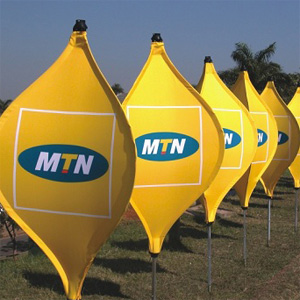
African mobile networks operator MTN will use Huawei’s IP RAN solution to upgrade their mobile backhaul network in Nigeria.
The upgrade will enable MTN to provide 100 Mb/s mobile Internet access for users in Nigeria, improving service experience for mobile users and promoting mobile broadband development in West Africa.
To improve the service experience for mobile users, MTN, the biggest mobile operator in Nigeria, has decided to build an experience-driven mobile backhaul network to improve the bandwidth and reduce the latency. This starts with launching the LTE network deployment plan.
Huawei said its IP RAN solution uses ATN series routers to form a 10GE access ring and uses terabit routers to form a 100GE core aggregation layer. The mobile backhaul network increases the bandwidth by four to five times and provides up to 100 Mb/s bandwidth experience for users.
Huawei said the simplified network architecture simplifies metro packet forwarding to one hop, reducing service latency by 70 percent — improving video service quality.
Huawei IP RAN solution enables MTN to provide better video services with optimal user experience. Through collaboration with Huawei’s Layer 3 Microwave solution, Huawei’s IP RAN solution extends Layer 3 to the edge of the backhaul network, shortening service provisioning from two weeks to one day.
Huawei said the unified end-to-end Layer 3 network maintenance and innovative IP Flow Performance Measurement (IP FPM) technology (an IP SLA measurement technology) implements minute-level fault diagnosis and improves the network maintenance efficiency by about 18 times.
Hassan Elchami, CTO of MTN, said: “We have cooperation with Huawei in multiple domains such as fixed network, wireless network, application and software, data center, cyber security, and management services. I believe that Huawei’s experience-driven IP RAN solution will enable MTN to provide better user experience and achieve great business success.”
Huawei has deployed more than 190 mobile backhaul networks in over 100 countries, serving one third of global users.
Baburajan K
[email protected]





